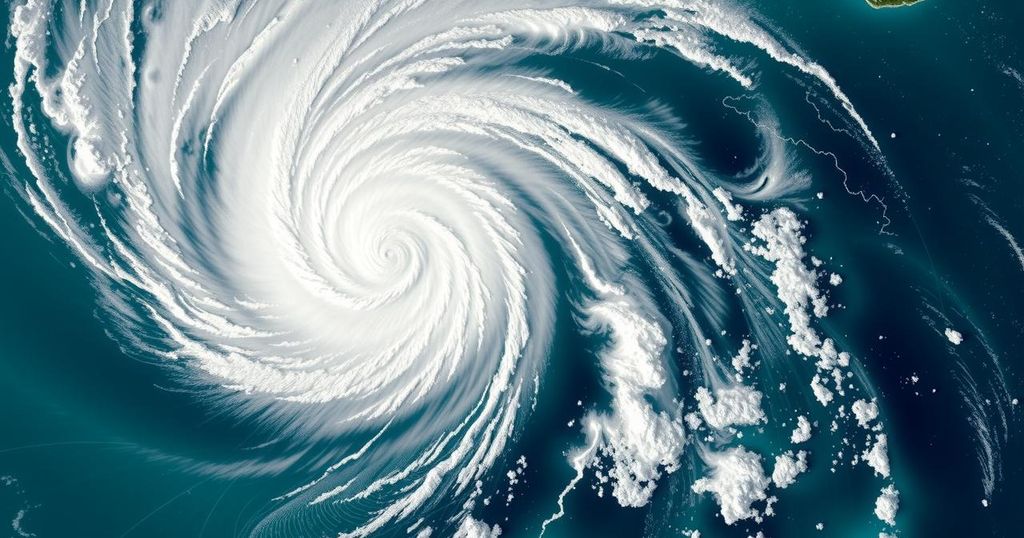Tropical Cyclone Chido: A Catastrophic Event for Mayotte
Tropical Cyclone Chido, the strongest storm to hit Mayotte in over 90 years, struck on December 14, causing widespread devastation with wind speeds exceeding 200 km/h and heavy rainfall. National mourning was declared by French President Emmanuel Macron, following reports of significant loss of life, exacerbated by informal housing structures. Despite advance warnings, the cyclone’s impact was severe, highlighting vulnerabilities in disaster preparedness on the island.
Tropical Cyclone Chido struck Mayotte on December 14, achieving wind speeds surpassing 200 km/h and gusts exceeding 225 km/h, making it the most intense storm to impact the island in over 90 years, as reported by Météo-France. Accompanied by torrential rain and hazardous sea conditions with wave heights averaging over five meters, the cyclone caused significant destruction, including damage to Météo-France’s facilities. French President Emmanuel Macron proclaimed a national period of mourning amid fears that hundreds may have perished, particularly in makeshift housing that could not withstand such a powerful storm.
Despite the issuance of timely warnings over 50 hours before the cyclone’s landfall, which included consecutive alerts culminating in a rare violet alert, the devastation was profound. Cyclone Chido took an atypical path, bypassing Madagascar, which could have weakened its intensity, thus hitting Mayotte directly. Following its assault on Mayotte, Chido moved on to landfall in Mozambique on December 15 and continued to unleash heavy rainfall in both Mozambique and Malawi.
While Météo-France acknowledged the unpredictable nature of Cyclone Chido, they emphasized that their current understanding does not establish a direct link between climate change and the storm’s trajectory or intensity. The rarity of such an extreme event, not witnessed in ninety years, underscores the unique characteristics of this cyclone. Furthermore, Météo-France serves as the Regional Specialized Meteorological Centre for Tropical Cyclones in the South-West Indian Ocean and had predicted an earlier-than-usual start to the cyclone season in their seasonal forecast issued on October 31. The forecast indicated a likelihood of near-normal to above-normal activity for the 2024-2025 cyclone season.
This article discusses Tropical Cyclone Chido, an unprecedented weather event that severely impacted Mayotte, a small island in the Indian Ocean, on December 14, 2023. Chido is notable not only for its intensity—recorded as the strongest storm in 90 years—but also for the extensive damages it caused both physically and in terms of human tragedy. Météo-France provided formal warnings yet the impact was catastrophic, pointing both to the atypical path of the cyclone and the vulnerability of the infrastructure on the island. Understanding its effects and the forecast for future cyclone activity are critical in the context of climate change and environmental preparedness.
In summary, Tropical Cyclone Chido represents a significant meteorological event for Mayotte, characterized by its extraordinary wind speeds and destructive capacity. The cyclone’s rare intensity and its direct hit on the island have brought forth a national mourning period, spotlighting the need for further inquiry into climate resilience and preparedness in the region. Given the trends in cyclone patterns and forecasts, there is an imperative to enhance infrastructure and safety measures to protect vulnerable populations from future natural disasters.
Original Source: wmo.int




Post Comment